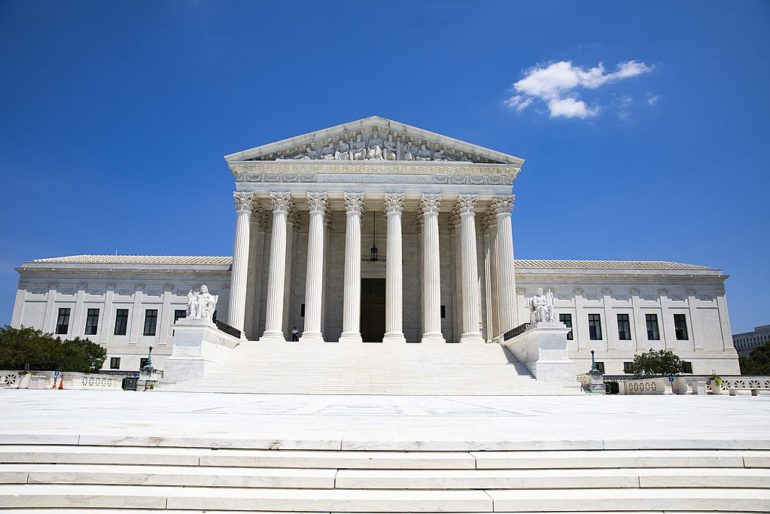Numerous members of the Supreme Court’s conservative majority reportedly appeared profoundly doubtful regarding a challenge to a Texas statute aimed at restricting childrens’ access to pornography, inundating a lawyer for the challengers with notably antagonistic inquiries.
Derek L. Shaffer, the attorney, asserted that the statute infringed upon the First Amendment by mandating age verification protocols, such as the provision of government-issued identification.
He stated that parents might safeguard their children by employing content-filtering software.
The debate mostly focused on whether the appeals court had mistakenly employed a lenient standard of judicial review to invalidate the law.
Numerous justices indicated that a more stringent threshold was applicable, even while suggesting that the Texas statute met this criterion.
This may establish the groundwork for a decision that grants the challengers a temporary triumph by remanding the case to an appellate court for the implementation of the more stringent standard.
However, there was minimal uncertainty that the law would ultimately be sustained.
State legislators asserted that protecting minors from explicit, violent, and humiliating online content warranted the legislation.
A trade group, producers of sexual materials, and a performer contested the law, asserting that it infringed upon the First Amendment rights of adults.
The court’s decision, anticipated by early July, will be significant, as 18 states have recently implemented laws analogous to the one in Texas.
Following the Fifth Circuit’s decision, Pornhub, a highly frequented website globally, ceased its operations in Texas.
The proprietor of Pornhub was one among the entities contesting the legislation. Justice Alito, in a derisive manner, implied that it markedly differed from the type of sexual materials evaluated by the court in previous decades.
In April, the Supreme Court declined to obstruct the statute while the progression of the appeal.
The majority of the appeals court based its conclusion on the 1968 Supreme Court ruling, Ginsberg v. New York, which permitted restrictions on the distribution of sexual materials, referred to as “girlie magazines,” to minors, even if such materials did not meet the threshold of obscenity, which is unprotected by the First Amendment.
Aaron L. Nielson, Texas’ solicitor general, stated that significant changes have occurred since 2004. The passage of time and the widespread accessibility of mobile phones rendered the notion that parents could depend on content-filtering software impractical.
The depravity of extensive online pornography, he asserted, constitutes a threat that necessitates decisive governmental intervention.
[READ MORE: Michigan GOP Leader Declares Intention to Run for Governor]





